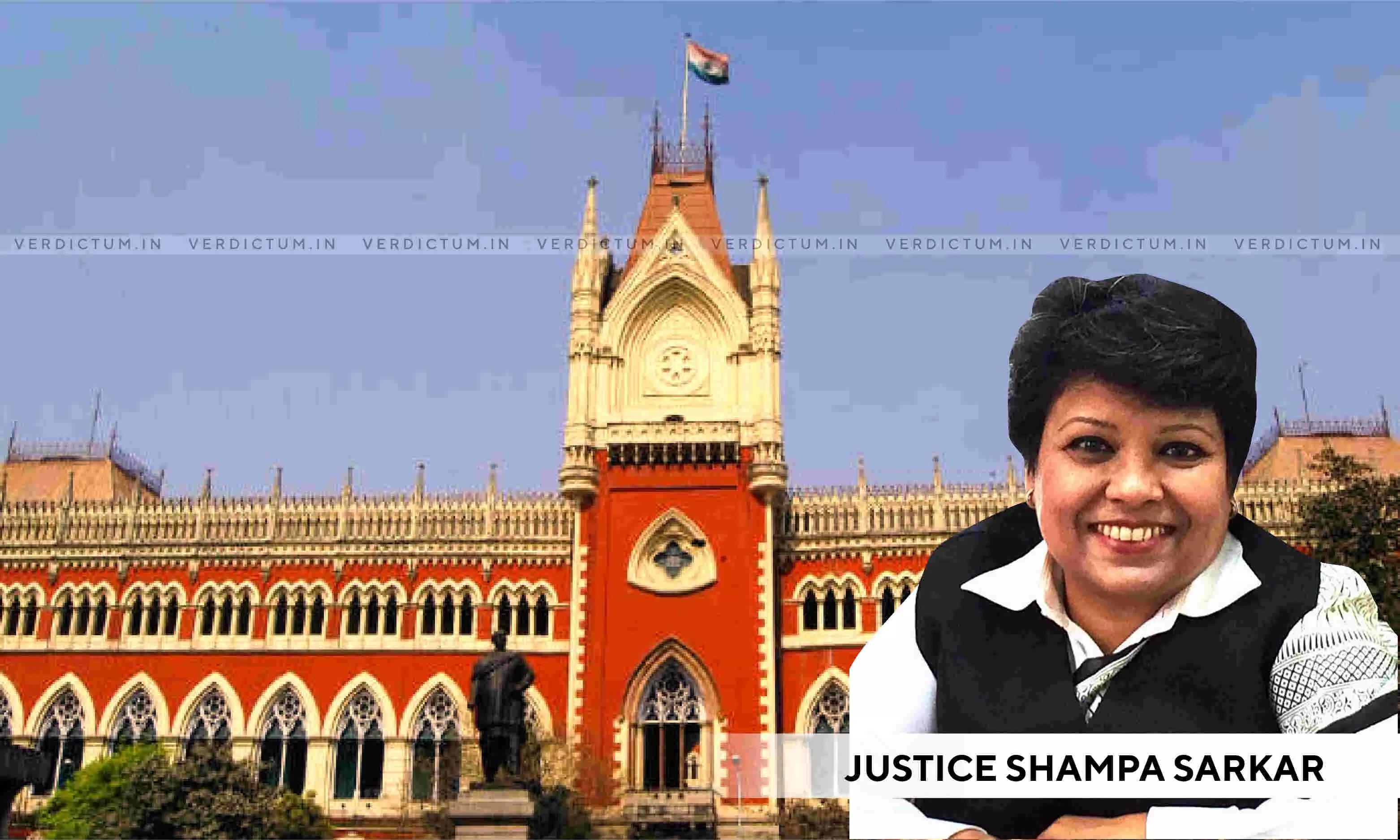
Breaking| No One Can Be Compelled To Observe Strike: Calcutta HC Says State Bar Council's Resolution To Strike Work & Organise Rallies On July 1 Against New Criminal Laws Is Not Mandatory
 |
|The Calcutta High Court has held that no one can be compelled to observe a strike or cease work after the Bar Council of West Bengal's resolution to observe a strike against three criminal laws on July 1 was challenged in a Writ Petition.
The Bar Council of West Bengal had passed a "unanimous" resolution on Wednesday against the three new criminal laws i.e. 1) Bharatiya Nyaya Sanhita, 2023 2) Bharatiya Nagarik Suraksha Sanhita, 2023 and 3) Bharatiya Sakshya Adhiniyam, 2023 by declaring July 1, 2024 as a 'Black Day' and calling for a boycott of all the Courts on that day.
The Bench of Justice Shampa Sarkar observed, “It is a settled position of law that no one can be compelled to observe strike or cease work. Lawyers discharge public function for the litigants. Thus, this resolution of the Bar Council of West Bengal shall not be treated as a mandate on the learned advocates to abstain from work. Willing advocates are entitled to appear before the Courts all over West Bengal and Andaman & Nichobar Islands. No coercive measures or disciplinary action or any action shall be taken against such advocates who wish to espouse the cause of their clients and who appear for the interest of their clients. The rallies which have been asked to be organized are in the nature of request to the Bar Association, this cannot be treated as a mandate.”
Advocate Lokenath Chatterjee appeared for the Petitioner whereas Senior Advocate Saptangshu Basu appeared for the Respondent Bar Council.
The Petitioner, one Sahasrangshu Bhattacharjee, contended that the Bar Council had no authority to call such a strike.
Per Contra, the Bar Council submitted that as the authority of the Bar Council of West Bengal to call such strikes and rallies is under challenge, some opportunity should be given to the Bar Council to file their affidavit-in-opposition.
The Petitioner, in its petition, has stated, “The petitioner submits that the said decision and directions of the Bar Council of West Bengal are in direct violation of several decisions delivered by the Hon'ble Supreme Court of India and various High Court from time to time, which have consistently held that strikes by advocates are illegal and unjustified. It is submitted that advocates have no right to go on strike or give a call for boycott, not even on a token strike…The petitioner submits that the said call for abstention from work by the Bar Council of West Bengal shall cause immense hardship and inconvenience to the litigant public, for whom access to justice is a fundamental right under Article 21 of the Constitution of India.”
In a statement issued after the meeting, the Bar Council of West Bengal had expressed vehement opposition to these laws, labelling them as "Anti-people Act, undemocratic, and draconian". The Council claimed that these laws would cause significant hardships to the general public. The Council had emphasized that these laws are perceived as a threat to fundamental rights and due process, potentially replacing established legal frameworks such as the Indian Penal Code, Evidence Act, and Criminal Procedure Code.
Incidentally, the Bar Council of India (BCI) in a resolution passed on June 26, 2024, had acknowledged numerous representations expressing strong protests against these laws, signalling potential indefinite agitations and protests unless these laws are suspended and subjected to nationwide discussions and parliamentary review. However, two members of the Bar Council had objected to the use of the word "unanimous" in the resolution, stating that they had opposed the resolution.
Furthermore, the BCI had called upon Bar Associations and Senior Advocates to submit specific provisions of these laws deemed unconstitutional or detrimental. This initiative aims to facilitate a productive dialogue with the government, echoing assurances previously given by the Union Home Minister at the International Lawyers’ Conference in September 2023 regarding the government’s willingness to consider amendments based on valid reasons and suggestions.
Accordingly, the Court directed Respondent to file an affidavit-in-opposition within three weeks and listed the matter for a later date.
Cause Title: Sahasrangshu Bhattacharjee v. Bar Council Of West Bengal and Ors.
Appearances:
Petitioner: Advocates Lokenath Chatterjee, Kaustav Ch. Das, Gouranga Ch. Das., Falguni Bandyopadhyay, Rajen Banerjee, Sukanta Ghosh, Rini Bhattacharyya, Tiyasa Biswas, Mary Dutta, Atanu Basu, Madhu Jana, Arghya Chatterjee, Sagnik Roy Chowdhury, Shilpa Thapa and Aishwarya Rajyashree.
Respondents: Senior Advocate Saptangshu Basu, Advocates Pantu Deb Roy, Lalit Mohoto, Achinta Banerjee, Ananta Shaw, Biswaroop Bhattacharya, Biswa Brata Basu Mulick, Sanjay Bardhan, Sabnam De Bardhan, Souvik Ganguly and Tarun Chatterjee.